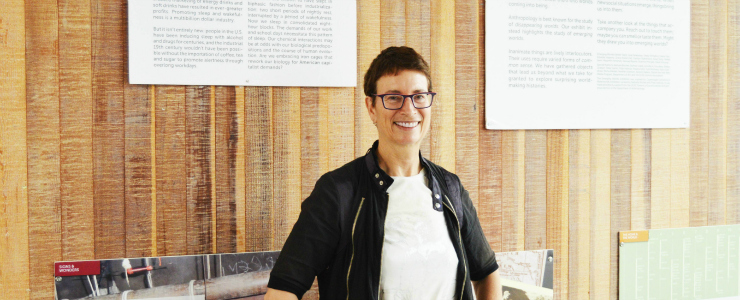About The Center for Emerging Worlds
Finding Emerging Worlds
“Emerging worlds” refers to the cultural heterogeneity and diversity created within world-making networks, geographies, innovations and meanings, moving us beyond ideas about vanishing, autonomous cultures. These worlds include border cultures, contact zones and middle grounds in which communication and social relations work through difference but does not get rid of it. These emerging worlds challenge our assumptions about national/cultural identities. They also challenge another conventional idea, that globalization is making places more alike, or homogenous.
The Center for Emerging Worlds is a scholarly think tank. It strives to get behind the headlines on worldwide transformations, both contemporary and historical. It encourages collaborative inquiry into historical and contemporary worlds that have been created through cultural, social, environmental, and political encounters. The Center emphasizes how these emergent worlds both create new forms of inequality while also offering new possibilities for resolving them. The Center provides a space for both scholarly and public educational work.
What is an emergent world?
These emergent worlds include but are not limited to the aftermath of the end of socialism, global religious movements, transnational environmental movements, social and political movements that address race, class, gender and sexuality, and global capitalism and its crises. We are witnessing large-scale upheavals and transformations in the world today. The Center hopes to produce more nuanced analyses of these transformations than one finds in the mainstream media.
UC Santa Cruz: a special place to study
Across the campus, there has developed an exciting and timely inter-disciplinary examination of how the human condition is irreducibly entangled: in history, in our relations with one another and other species, in the landscapes we inhabit and construct. Entanglement is what creates the condition for new futures to emerge: this is what we have learned through exploring the historical engagements and contemporary interconnections at work. The Anthropology Department adopted the framework “Emerging Worlds” to build on a series of department conversations about social worlds in the process of becoming rather than of “vanishing cultures.” This approach, however, is fully inter-disciplinary on our campus.
UC Santa Cruz leads this kind of scholarly/public/activist work. It has pioneered trans-disciplinary scholarship across the Social Sciences, Humanities and Arts, which has reconfigured how contemporary scholars think about global interactions and connections. The campus is a major source of the conceptual vocabulary and methods that are inspiring deep historical work on ancient and modern globalizations, innovative cross-cultural and cross-regional studies, and attention to new, complex objects of global connection. Diasporas, borderlands and contact zones, hybrid musical and artistic genres, world literatures, global indigeneities, the entanglement of nature and culture, religiously inspired social movements, and transnational capitalism: all are themes pioneered by scholars at UCSC. These are themes that could only have taken shape in settings where faculty and students are unafraid to cross disciplinary boundaries in their attempt to see the world in radically new ways.
The Center highlights how the theme of emerging worlds resonates notj ust with the UCSC community but also in the wider Santa Cruz community. These include public forums that address the various conflicts, environmental challenges, resource competitions, and ethnic nationalist and religious tensions that we see in the world today.
Collaborating towards social justice
The Center will foster collaborative projects that are global in scale, while grounded in historical and ethnographic approaches to on-the-ground relationships and processes. The Center will also confirm UCSC’s commitment to a politically engaged scholarship. Questions of social inequality and social justice are at the forefront of our impetus for examining emergent worlds, which both produce novel forms of domination and offer possible ways to overcome them.

